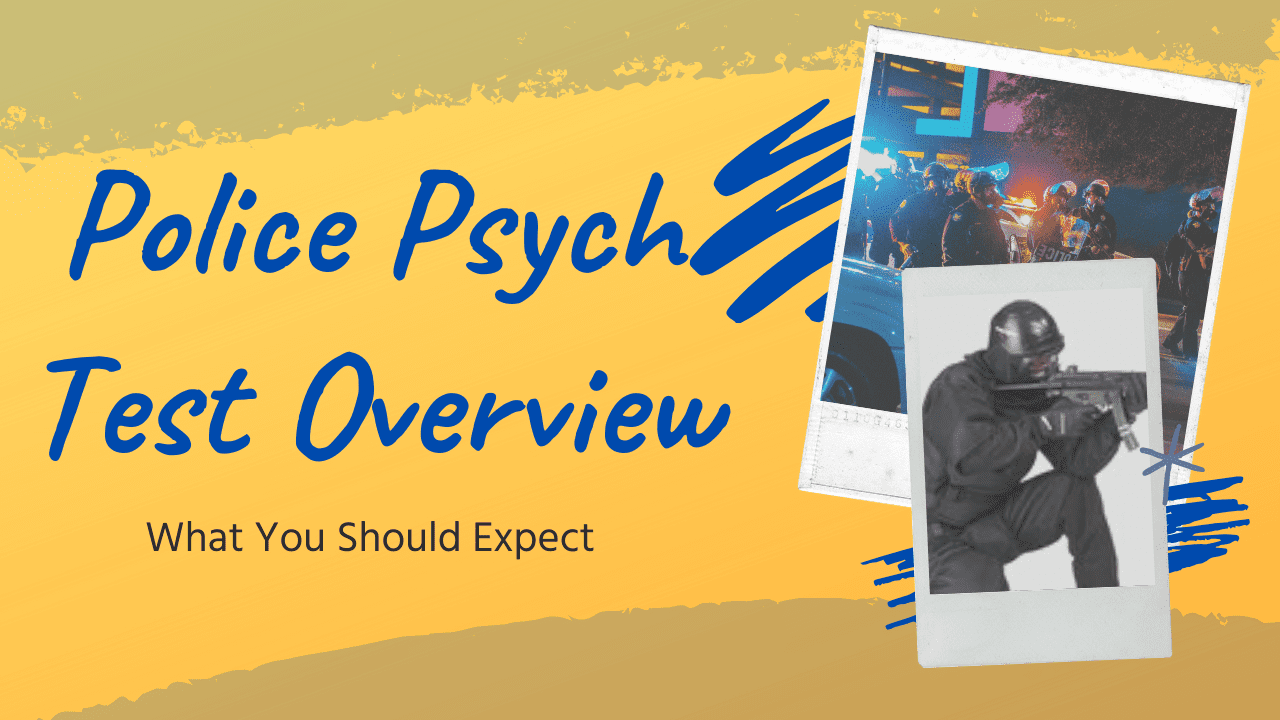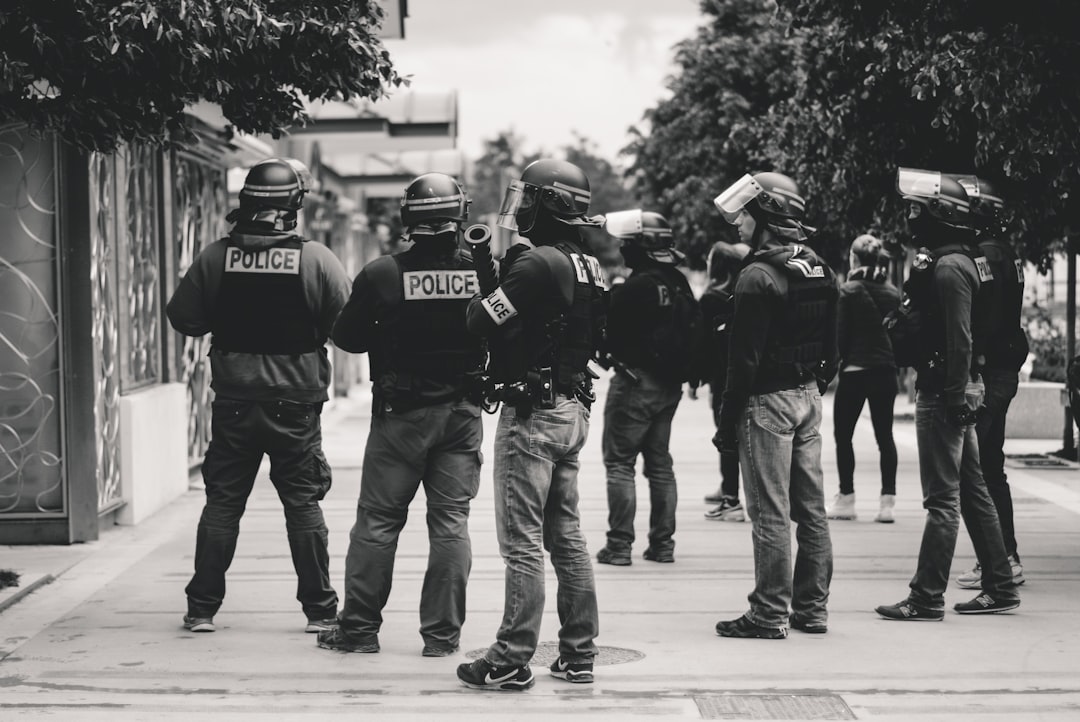police psychological test Overview
Learn everything you need to know
About the police psych test and what to expect
Table of Contents
Top 3 Things Police Psychologist Are Screening For
Mental Suitability
the pre-Hire psychologist will evaluate a potential recruit's judgment, stress resilience, anger management, integrity, honesty, teamwork, and social competence
Mental fortitude
During the pre-employment psychological screening the applicant will be evaluated on whether they are capable of withstanding the psychological demands inherent in the position of a police officer
Pre-existing Mental Condition
Psychologist are checking for problematic mental conditions that may adversely affect the performance of the candidate's duties and responsibilities
WATCH: What To Expect on The police psychological test

Police Psychological Exam Overview and What to Expect
A series of psychological tests are typically required for police officers. Psychological testing is administered in 90% or more agencies across the United States (according to estimates). This part of the pre-employment process could literally make you or break you. On average, 1 out of every 20 applicants get screened-out by this portion of the process. Although this part of pre- employment is important, there seems to be a cloud of mystery around it.
The truth is, these tests don’t measure your sanity level. They measure your personality traits. Police officers encounter stressful, dangerous situations on a regular basis. Many types of personalities are required in law enforcement. But there are some personality traits that are frowned upon in the agencies. And these negative traits are the main focus of screening.
Years of study have been put into the making of this screening process. Psychologists and lawmakers around the country are confident in its abilities to predict behaviors. Agencies have put a lot of trust into psychological testing.
How Psychological Testing Is Used for Hiring
Being hired on to the police force is a long and multiple step process. There are many background checks and tests involved to make sure that you are properly suited for the position. These involve credit checks, fitness level and physical testing, full medical check, polygraph tests and general ability exams. In addition to all the above, there is also a psychological examination involved.
The purpose of the psychological examination is to prove you’ve got the psychological strength to deal with all the pressures of working in law enforcement.
There are multiple elements involved in the testing. A self-evaluation starts out the exam, followed by written tests answered in multiple choice. Once those tests are complete there will be a one-on-one meeting with an experienced public safety psychologist.
The psychologist will then take the results of all 3 elements and make a decision as to whether they think the candidate is an appropriate fit for a career in law enforcement. The candidate will be ranked either low, medium, high risk or acceptable, marginal or unacceptable.
What Should You Expect?
First, you’ll need to make a trip to the psychologist’s office. Other applicants will probably be there as well. This is because multiple people can be evaluated at once. Once you’ve signed a form of consent, the official process will start.
Initial questionnaires will be used to learn a little more about your personal history. These include questions about past drug use, employment, and educational background.
After the initial questionnaire, it’s time for the bulk of the assessment. You’ll be given a series of multiple-choice tests. These will be used to measure your personality. The answers will typically be represented on a gauge from strongly disagree to strongly agree.
You will pick a spot on the gauge that is most appropriate for yourself. It is probable that you will notice a similarity between some of the questions. This is done purposefully to check how consistent and truthful you are in your answers. Expect to spend several hours on this portion of the assessment. Also expect to see material from the Minnesota Multiphasic Personality Inventory.
A face-to-face interview is typically required after the personality assessment. This will be your opportunity to explain your answers to the psychologist. After the interview is over, the psychologist will begin drawing conclusions. The results will be sent to the hiring agency.
What Personality Traits Are Assessed?
Being a police officer requires the highest levels of ethical standards. Personality plays a huge role in determining if someone is in the right mindset to be in law enforcement. Due to the importance of personality, this screening helps weed out the people who really shouldn’t be in the field. A psychologist takes the results and forms an opinion on whether the person should be hired or not.
Below are some common personality traits that get tested.
| •Motivation for choosing law enforcement Appropriate attitude involving sexuality •Ability to perform boring tasks •Ability to be supervised •General intelligence •Sufficient courage |
Impulse control •Dependability •Past drug use •Judgment •Integrity |
Throughout many years of studying the habits and traits of those in law enforcement, the above have been deemed the most prevalent to asses prior to hiring someone on to the police force.
Examining applicants psychologically through these tests can raise red flags or identify those who may not be suited for law enforcement. Police officers are looked up to are leaders and protectors in the community and must represent ethical characteristics.
Are They Effective?
Law enforcement agencies and psychologists have determined that this testing procedure is extremely effective in identifying applicants’ behavioral traits. This is based on many years of research and recorded data.
Records show that the testing process usually removes about 1/5th of the candidates. This is due to candidates either choosing not to continue with the hiring process or because they were not approved by the psychologist. Though it may seem like only a small percentage get weeded out at this step it is worth the investment. Even a few officers on the street who are not psychologically fit could lead to major problems, both for the agency and the community.
How to Pass the Exam
The most important part of passing the exam is to be truthful. The tests are built in a way that they can catch applicants who are lying or inconsistent with their answers. Make sure to read the questions very thoroughly and know exactly what the questions are asking and answer accordingly. You can always ask for clarity if necessary.
Beyond the test itself, make sure to dress appropriately. Treat this as a formal interview and ensure you are properly groomed and put together.
What if You Fail?
Don’t view it as a failure but as an indication that working as a police officer may not be the best fit for you. Re-evaluate your passions and think about where you see yourself years from now. If you do conclude that law enforcement is what you want to do than you can always apply again, but you may not be allowed to for at least a year. This will give you a chance to work on any of the issues that prevented you from moving through the hiring process this time around.
Police Psychological Evaluation Test
If you want to become a police officer whether on the state, federal, or city level, there is one thing that is almost always administered before you can be offered the job and that is the psychological examination. Some candidates wrongly believe the psych evaluation test is classified as a crazy test; meaning the only people who fail are crazy. Nothing could be further from the truth.
The purpose of the psychological test is to determine if you are able to deal with the various challenges of a police officer. Recruits who consider this examination a crazy test are misinformed. The exam itself is subjective and the psychologist, based on data collected, will make a recommendation on if the recruit is suitable for police work or not. It really all depends on the psych evaluator.
Here are some traits from a potential prospect that might raise a red flag, and subsequently get you DQ’d:
Below average problem-solving and social judgment suggests a lack of experience in making decisions while under pressure, particularly when being pulled in several different directions by people or issues that might influence you. In short, it comes down to a lack of life experience.
Difficulty presenting information in a straight forward manner suggests you may have difficulty analyzing facts and relating them to others in a brief, concise and accurate manner. Instead, it suggests you may include too much information, unnecessarily injecting other factors that have no relevance and complicating resolution of the matter. Again, this suggests a lack of life experience.
Aggressive behavior – Prospect that displays an unwillingness to listen to authority or is in a constant state of aggression will raise a red flag to the examiner, and as a result will issue the department a “not suitable to be a police officer” recommendation.
Like I mentioned in this article, there is no way to prepare for the police psychological evaluation test. You just need to be honest.













